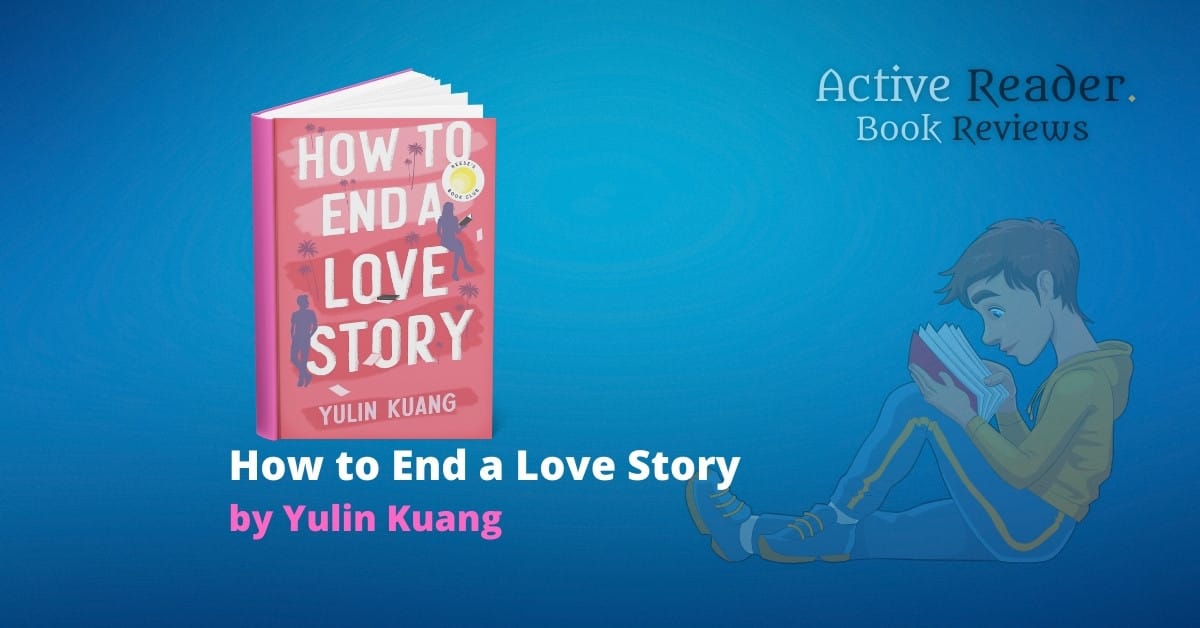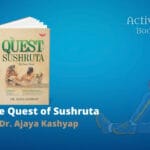Romance doesn’t scare me unless it becomes a voluminous and tedious task to get across. Yulin Kuang’s novel, surprisingly titled How to End a Love Story, feels nudging and agile until the pace of the story takes over your excitement, and you feel overburdened by the usual drab romantic fiction brought to the table! Isn’t it? Let’s discuss these details in this book review.
Yulin Kuang’s How to End a Love Story offers readers a deeply emotional journey through grief, trauma, love, and the complexities of human relationships. The narrative centred on Helen Zhang, a successful young adult (YA) author, and Grant Shepard, a screenwriter for the TV adaptation of Helen’s series, begins on a tragic note. Helen’s sister, Michelle, takes her own life by stepping in front of Grant’s car—a devastating event that serves as the cornerstone of the story. A decade later, Helen and Grant work together, forcing them to confront their unresolved emotions and the trauma that has shaped their lives.
Plot and Storyline
The novel’s dual timeline structure presents a manifold rich exhibition of past and present events. Kuang skilfully introduces readers to Helen and Grant’s individual backstories while building tension around their fraught reunion in the writer’s room. Helen’s unresolved grief over her sister’s death and her complicated relationship with her immigrant mother drive much of the emotional weight. At the same time, Grant’s internal struggles add depth to his character. The plot meanders through their tentative reconciliation, burgeoning attraction, and eventual romantic entanglement.
While the initial premise is captivating, the pacing is inconsistent. The early chapters are gripping and laden with emotional stakes, but the middle sections falter, prioritising sexual tension over character development. Despite this, Kuang excels at creating moments of vulnerability and tenderness, such as the “couch scene,” which encapsulates the nuanced intimacy between Helen and Grant. These scenes are poignant and showcase the author’s ability to evoke raw emotion.
Themes and Emotional Resonance
The novel tackles heavy themes, including grief, trauma, familial expectations, and the stigma surrounding mental health in immigrant communities. Helen’s relationship with her mother is particularly compelling. Kuang portrays the tension between Helen’s desire to honour Michelle’s memory and her yearning for independence with authenticity. This exploration of cultural and generational divides is one of the book’s standout elements, as it resonates deeply with readers who have experienced similar dynamics.
Romantically, the story delves into themes of acceptance and healing. Helen and Grant’s journey highlights how love can be both a balm and a crucible for personal growth. However, the romance often feels undercut by the characters’ inability to confront their issues directly. Their physical connection frequently precedes meaningful dialogue, leaving some emotional threads unresolved.
Strengths
- Emotional Depth: Kuang’s writing brims with emotional intelligence. Her ability to “show, not tell” creates a visceral reading experience. Moments of quiet vulnerability, such as Helen processing her grief or Grant grappling with his guilt, are beautifully rendered.
- Cultural Nuance: The portrayal of Helen’s immigrant family dynamic is nuanced and relatable. The novel explores the pressure to conform to familial expectations while carving out a personal identity.
- Authenticity in Angst: Kuang captures the rawness of grief and the complexities of forgiveness with unflinching honesty. Readers who enjoy emotionally charged narratives will find themselves deeply invested.
Weaknesses
- Character Development: Helen and Grant’s personal growth feels superficial. Key aspects of their backstories—such as Helen’s strained parental relationships and Grant’s feelings of culpability—are hinted at but never fully explored.
- Overreliance on Physical Chemistry: While the romantic tension is palpable, the relationship leans too heavily on physical intimacy. This imbalance detracts from the emotional depth that the storyline promises.
- Pacing Issues: The narrative occasionally loses momentum, particularly in the middle sections. The third act attempts to resolve the central conflict too quickly, leading to an unsatisfying resolution.
- Handling of Suicide: Amidst the ongoing discussions on the need for sensitivity and empathy for certain things, ideas and feelings, the events depicted in the story might trigger certain readers. For instance, the depiction of Michelle’s suicide and its aftermath lacks sensitivity in certain areas. The narrative occasionally veers into emotionally manipulative territory, which may alienate readers sensitive to the subject.
Writing Style
Kuang’s prose is evocative, characterised by lyrical descriptions and poignant dialogue. However, the writing occasionally suffers from stylistic excess. The overuse of italics, vague descriptors, and repetitive inner monologues can feel self-indulgent and detract from the story’s impact. Additionally, while functional, the third-person limited perspective creates a sense of detachment that diminishes the emotional immediacy of the characters’ experiences.
Final Verdict
How to End a Love Story is a polarising novel. Its strengths lie in its emotional resonance, cultural authenticity, and exploration of complex themes. However, its weaknesses in character development, pacing, and handling of sensitive topics prevent it from reaching its full potential. While tender in moments, the romance between Helen and Grant lacks the depth necessary to engage readers fully.
For angsty, emotionally charged romance fans, Kuang’s debut offers enough intrigue to warrant a read. However, those seeking a more balanced narrative with well-rounded character arcs and thoughtful handling of heavy themes may be disappointed.
Overall Rating: 3/5
Yulin Kuang shows promise as a storyteller, particularly in her ability to evoke raw emotion. While How to End a Love Story may not be flawless, it establishes her as a voice to watch in contemporary romance. Her future works could resonate even more powerfully with refinement and deeper character exploration.
Review by Shikha for Active Reader
How to End a Love Story by Yulin Kuang Book Review
- Active Reader Verdict
Summary
The novel is a mixed bundle of offerings for readers. Those who love contemporary romance at any cost will find something to stick to. Those who look for critical and aesthetic qualities in narratives might be disappointed in certain areas.



No Comment! Be the first one.